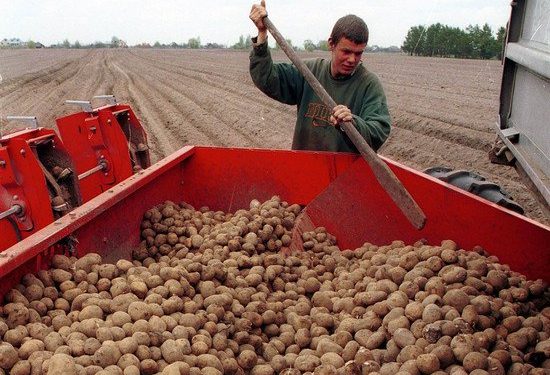The sanctions imposed against Russia by Western countries have revealed a painful problem: the share of food imports is so high that it puts our country in an extremely dependent position. Our ideological opponents only need to want to, and we will be left without our own meat, eggs, beets, simple potatoes, finally! How could this be allowed to happen, and who should be responsible – these are questions for law enforcement officers. On Thursday, the Russian Academy of Sciences discussed the problems of the agro-industrial complex and ways to solve them. The MK correspondent was present at the meeting.
Academician of the Russian Academy of Sciences Viktor Tutelyan noted that many of the health problems that Russians have been complaining about in recent years, for example, obesity, a weak immune system, digestive problems associated with the gastronomic sphere. Giving up fatty, sugary foods is only half the battle. The main thing is to get the maximum amount of vitamins, microelements and biologically active substances with food. But with this we are tense, because not everyone can afford truly high-quality products because of their high cost. Let’s look at this issue from the point of view of the current situation related to the sanctions imposed against our country. We will see that only 28% of our special products, rich in the above useful components, are imported.
According to the scientist, we have practically no (2% not counting) our own production of vitamins, minerals, amino acids, protein concentrate, nutritional supplements. Even in simple round vitamins, often ours, Russian, is only the packaging. But without these components, it is impossible to produce baby food, fermented milk, or meat products. There is only one conclusion: it is urgent to restore the production destroyed after the “perestroika era”.
In order to urgently restore agriculture, we need to understand what we are sorely lacking now. According to Nikolai Dolgushkin, Vice President of the Russian Academy of Sciences, who has been in charge of the agricultural direction at the Academy since September, things have moved forward. For example, two days ago, the Council for Scientific Research in the field of agro-industrial production and the complex of rural development was created; Prime Minister Mishustin signed a decree according to which 11 institutes that were engaged in selection and seed production of critical areas were transferred from the jurisdiction of the Ministry of Education and Science to the Ministry of Agriculture. That is, now cattle breeding, the production of sugar beets, corn, potatoes, soybeans, sunflowers will be under the close supervision of those who know shorter ways to introduce them into production.
And we have a rich gene pool. Academician Vladimir Kosolapov cited as an example only VIR (All-Russian Institute of Plant Growing), whose collection includes 375 thousand (!) seeds. And how many other institutions keep them! For example, in Russia there is a collection of 7 thousand samples of flax, there is a genetic bank of healthy potato varieties, which is located in an ideal location – at an altitude of 2500 meters in North Ossetia.
What, one wonders, prevented the introduction of these healthy varieties earlier? Why did they lower the share of production from their own potato seeds to a critical 7 percent? Things are worse only with sugar beets, the share of their own seeds in our country has dropped to 1.8 percent.
The director of the relevant department of the Ministry of Agriculture, Irina Lavrentyeva, noted a positive trend with the transfer of 11 institutions to her ministry. According to her, by 2030, interaction between these research institutes and agricultural enterprises will be established. Might as well hurry up…
Nikolai Dolgushkin, who chaired the meeting, spoke about the Strategy for the Spatial Development of Agriculture and lamented that the specialists who developed it did not bother to consult with the Russian Academy of Sciences, which, for a moment, is the main expert in the country. As a result, non-scientific placement of agro-industrial enterprises, without taking into account economic benefits, led to an increase in the cost of products.
- You did not ask why we have cucumbers for 400 rubles? he asked a rhetorical question.
This is about crop production. Vugar Baghirov, director of the department for coordinating the activities of organizations in the field of agricultural sciences, reported to the audience on livestock products. Carefully avoiding the fact that only 1.7-2% of chickens of domestic origin are still sold in the country (Nikolai Dolgushkin reported this), he cited mostly encouraging facts. For example, about 150 new genetic laboratories created by the Ministry of Education and Science over the past three years, about 1 billion 700 rubles of funding annually allocated for work, about 5 billion rubles allocated for the construction of 20 poultry houses, in which the production of chicken meat of the domestic breed “Smena-9” will be developed.







